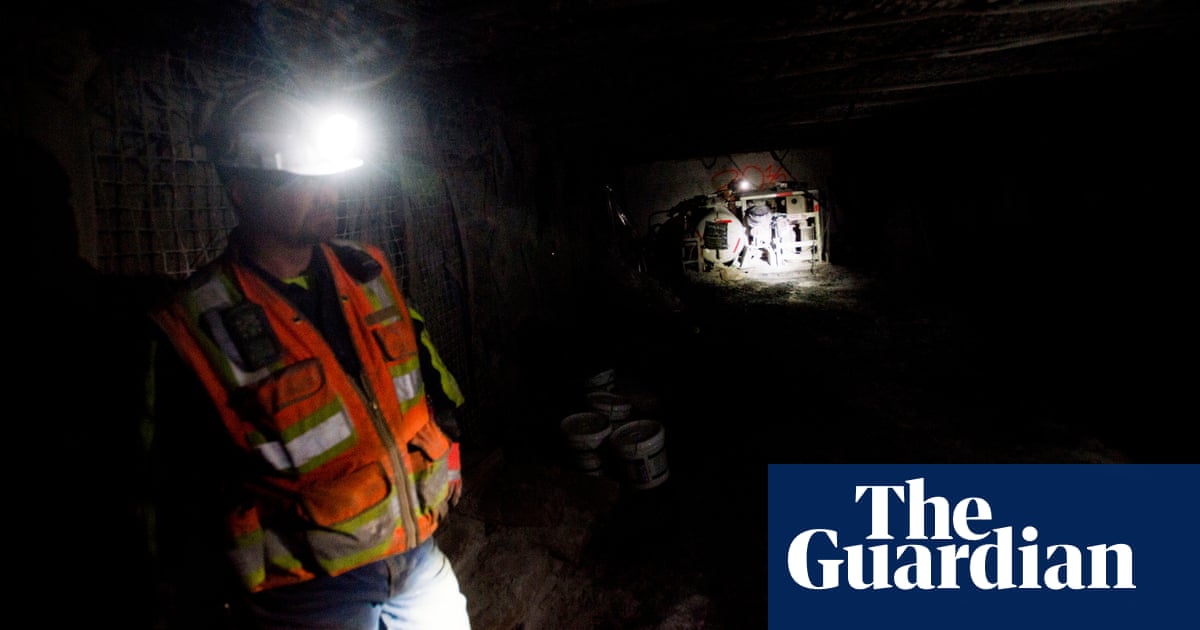During my three-decade career as a games journalist I have written a lot of “most anticipated games of the year” articles, and they nearly always have a familiar theme: “Well, the lineup is dominated by sequels (yawn), but at least there are one or two original titles to look forward to!” From today’s vantage point that ennui over the predictability of the games industry looks incredibly quaint. We didn’t know how good we had it.
The past five years have seen seismic shifts in the mainstream industry, mostly connected to the irresistible rise of “live service” games such as Fortnite, GTA Online and Genshin Impact, which survive over multiple years through voracious subscription models. The biggest are insanely profitable: since its launch in 2017, Fortnite is estimated to have earned $20bn (£15.7bn), maintaining 500 million player accounts into its sixth year. GTA Online still makes an estimated $500m a year (£399m), more than a decade after its initial release.
The past two years have seen major publishers scrambling for their share in the live service bonanza – often with disastrous results. In the past 18 months, three major live service games have been cancelled: Creative Assembly’s Hyenas, Sony’s Concord and Ubisoft’s XDefiant, with losses in the hundreds of millions, as well as studio closures and staff redundancies. There were about 10,000 games industry layoffs in 2023; according to the online layoff tracker maintained by game artist Farhan Noor, the number for 2024 approached 15,000. As Olivia Rodrigo succinctly put it: “God, it’s brutal out here”.
So now when I look at the games due to arrive in 2025, my mood has somewhat changed. There are indeed a lot of sequels. Grand Theft Auto VI will, of course, be the mega event of the year when it arrives in the autumn. But there is also Hideo Kojima’s post-apocalyptic sci-fi opera Death Stranding 2; Sid Meier’s history-spanning strategy sim Civilization VII; Capcom’s open-world beast-catching epic Monster Hunter Wilds; and Ubisoft’s latest time-travelling hitman odyssey, Assassin’s Creed Shadows. Not a month will pass without some sort of nostalgia-packed franchise iteration.

And I feel … relieved. Naturally, many of these massive, expensive and ambitious projects will have gone into production before the industry doubled down on its obsession with identikit live service wallet-whackers. Nevertheless, it is bizarrely comforting to see that they haven’t been summarily abandoned or – as far as I know – converted into free-to-play gacha games crammed with microtransactions and multiple interconnected currencies.
I suspect that in the coming months we’re going to see a lot of dilapidated intellectual property being rebuilt by big publishers as they seek alternatives to the clearly extremely precarious live service merry-go-round. This year we’re expecting a relaunch of the classic role-playing series Fable, while Sega is exhuming brands such as Crazy Taxi and Shinobi, and SNK is bringing back fighting game series Fatal Fury after more than 25 years. This is all very similar to the way the music, film and stage musical industries continually repackage classic albums and movies to create bankable premium experiences for older fans. In these tough, unpredictable times we all need reassurance.
But I don’t think the big titles coming out next year are merely safe money-spinners. We don’t know much about GTA VI, but we do know it is going to be wild, controversial and extremely adult – unlike most live service titles, which are pitched at the widest possible global audience. Death Stranding 2, like its predecessor, will be an almost incomprehensible yet utterly gorgeous examination of death and solitude on a ruined planet. Doom will be what it has always been: gross and hyperviolent. These are games so big they don’t have to worry about alienating key demographics; they don’t have to work virtual currencies or seasonal battle passes into their sprawling narratives (though GTA VI will certainly come with an online multiplayer side hustle). One of the last games I reviewed in 2024 was the morose and depressing open-world adventure Stalker 2: Heart of Chornobyl, a game about picking your way through an obliterated Ukraine, eating mouldy bread to stay alive and being attacked by rabid dogs. Good God, what a pleasure it was to be dumped into this miserable landscape once again; how wonderful that this game could still be made and sold.
Somehow, in the madness of the modern mainstream games industry, returning to what games used to be has become something wildly courageous and optimistic. What a time to be alive, holding a joypad, hoping to be entertained … by a sequel.
What to play

If you’re looking for a fantasy rogue-like adventure of incredible depth, and enjoy the aesthetics of 1980s computer role-playing games, Caves of Qud is for you. It’s a vast, richly detailed opera of a game tinged with sci-fi and filled with weird mutant creatures, exotic plant life and ruined civilisations, all conveyed through simple (yet stylish) 2D visuals and numerous interconnected menu systems. The world and elements of the story are procedurally generated, leading to wildly different playthroughs as you explore landscapes, kill monsters and gather items.
Developed over 15 years by a small team, it has the same idiosyncratic, obsessive qualities as acknowledged genre classic Dwarf Fortress, but I’ve found it more approachable and seductive. You sit down for a quick mooch about and then five hours mysteriously disappear. A true wonder.
Available on: PC
Estimated playtime: Hundreds of hours
after newsletter promotion
What to read

-
The Steam winter sale is on! There are plenty of bargains to be had – but only until tomorrow, when the sale ends. Polygon has a great list of recommended titles. Balatro, I Am Your Beast and Stardew Valley are ridiculously good value.
-
If you’re looking for console gossip, VGC has a good piece on the latest Nintendo Switch 2 speculation, including a much more powerful dock and the elimination of “stick drift”, which led to lots of Switch users losing control of their games.
-
A recent study published in the Journal of Medical Internet Research has found that open-world games can aid relaxation and mental wellbeing. According to Neuroscience News, “Open-world games, known for their expansive environments and player autonomy, offer a form of cognitive escapism that helps players disconnect from daily stressors and enhance their mood.” The research team clearly did not watch me trying to beat Maliketh, the Black Blade, in Elden Ring.
What to click
Question Block

This recent question from a reader is one that comes up regularly, so it’s worth considering again:
“What iPad games can I get for a five-year-old that don’t contain any microtransactions or require a monthly subscription?”
It’s become extremely difficult to find premium (paid) games on the App Store, especially ones suitable for children. All the money is in the free-to-play model where games don’t cost anything to download but then hit you with in-app purchases, adverts, or both. However, I asked Andy Robertson, founder of the excellent Family Gaming Database and author of the book Taming Gaming for his suggestions. “Mouse & Crane is perfect for five-year-olds,” he says. “It’s a lovely cooperative puzzle game about three unlikely friends who live in a harbour and fix machines. Chuchel is another great option. It’s a comedy adventure where you play hairy hero Chuchel and his rival Kekel to solve simple puzzles and retrieve the precious cherry.” My sons also really loved the Toca Hair Salon games, which let you cut and style the hair of various funny customers.
If you’ve got a question for Question Block – or anything else to say about the newsletter – hit reply or email us on [email protected].

 3 months ago
96
3 months ago
96













































